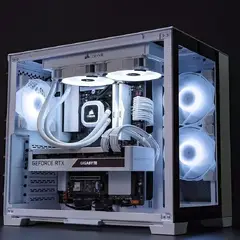Your Aunt walks into a computer store, how would you want her advertised to?
2 hours ago, HeyKitty said:Alrighty, I think I may go with something like a:
Looks good just watch out for formatting:
- Choose either full capitalization or not, in europe usually you do not (e.g. Operating system, USB ports, Screen size), so whichever you choose, be consistent as you have a mix at the moment
- Summery --> Summary
- The second column should be left aligned, and then the field should be left aligned, but in a different cell so that they are all aligned together. Right alignment is usually reserved for numbers
- I think the Y-axis lines in the graph are distracting and you should go for a white background
- Personally, I think the summary is more important than the specs (as you are a brick and mortar shop), so Have the summary on top
- I wouldn't graph "condition" as it is a more qualitative metric than a quantitative one.
- Less is more, I wouldn't graph RAM and let the RAM component be part of the processor score
All in all, its a good idea, you just have to put the effort in keeping it consistent and relevant. for example, when a new model comes in and blows everything out of the water, you will need to re-scale all the labels, otherwise it doesn't make sense anymore. And while the scale can be arbitrary, the scoring should not be arbitrary, you shouldn't just randomly score a certain CPU because you think its good or not, get proper numbers, otherwise down the road it will not match up between products.

















Create an account or sign in to comment
You need to be a member in order to leave a comment
Create an account
Sign up for a new account in our community. It's easy!
Register a new accountSign in
Already have an account? Sign in here.
Sign In Now